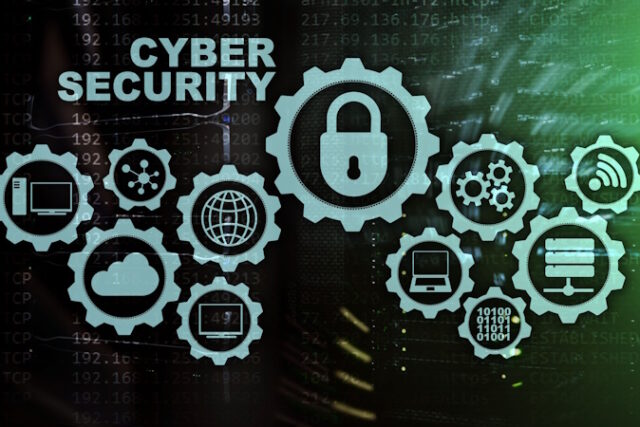
In today’s interconnected world, cybersecurity has become an indispensable aspect of business operations. The growing dependence on technology and online platforms has exposed organizations to an array of digital threats that are constantly evolving in complexity.
Adam S. Strobel of Indiana understands that businesses of all sizes must recognize that cybersecurity is not merely a technical concern but a strategic priority that affects every aspect of their operations. From safeguarding sensitive data to maintaining customer trust, the importance of robust security measures cannot be overstated.
By adopting a forward-thinking stance, businesses can mitigate risks, protect their assets, and create a foundation for long-term success in an increasingly volatile cyber landscape.
The Urgency of Cybersecurity in Modern Business
Modern businesses increasingly depend on digital tools and online platforms to manage operations, communicate with clients, and store sensitive data. This reliance has made them prime targets for cybercriminals, who deploy sophisticated tactics to exploit vulnerabilities. Small and medium-sized enterprises, often lacking robust defenses, are especially at risk.
The consequences of cyberattacks extend beyond financial losses. A single breach can disrupt operations, damage a company’s reputation, and erode customer trust. Organizations that fail to prioritize cybersecurity often find themselves struggling to recover from the cascading effects of such incidents. This highlights the undeniable interconnection between security and business continuity.
Proactive Cybersecurity vs. Reactive Approaches
Proactive cybersecurity focuses on identifying and addressing vulnerabilities before they can be exploited, while reactive approaches deal with threats only after an attack has occurred. Businesses that rely solely on reactive measures often find themselves caught off guard, scrambling to contain damage that could have been prevented with early intervention.
A proactive strategy includes measures such as regular system monitoring, threat detection, and employee training to mitigate risks. By addressing vulnerabilities upfront, organizations not only reduce the likelihood of breaches but also lower the long-term costs associated with recovery and legal penalties. This approach also fosters a culture of preparedness, which is invaluable in an unpredictable threat environment.
Essential Strategies for Cybersecurity Preparedness
Regularly assessing risks and addressing weak points in systems is fundamental to building a strong cybersecurity framework. Businesses should adopt practices such as implementing firewalls, intrusion detection systems and ensuring all software is updated to close security gaps. Neglecting these basics leaves organizations vulnerable to increasingly sophisticated threats.
Training employees to recognize phishing attempts and other social engineering tactics is equally critical. Human error remains one of the most common causes of breaches, and well-informed staff can serve as the first line of defense. A sales company, in one such instance, avoided a costly breach when a trained employee identified a suspicious email and reported it before any damage was done. This underscores the importance of employee vigilance as a crucial element of an organization’s security posture.
These strategies not only protect sensitive information but also ensure business continuity. In today’s fast-paced environment, even a brief system outage can lead to lost revenue and unhappy customers. Proactive preparedness minimizes these risks, allowing businesses to operate with confidence while maintaining their reputation and trustworthiness.
Advanced Technologies for Enhanced Protection
Emerging technologies have revolutionized the way businesses safeguard their digital assets. Artificial intelligence, for instance, plays a pivotal role in identifying threats in real-time by analyzing patterns and detecting anomalies that might go unnoticed by human oversight. Similarly, zero-trust architecture has become an essential framework, ensuring that no user or device is trusted by default, even within a secured network.
A mid-sized financial firm once avoided a major breach thanks to AI-driven threat detection, which intercepted malware hidden in seemingly legitimate files. Such advancements highlight the importance of integrating cutting-edge tools into cybersecurity strategies. Additionally, data encryption ensures that even if unauthorized access occurs, sensitive information remains secure, mitigating the potential impact of breaches.
Businesses without in-house expertise are increasingly turning to managed security services to bolster their defenses. These providers offer around-the-clock monitoring and tailored solutions, ensuring that organizations stay ahead of evolving threats while focusing on their core operations.
Regulatory Compliance and Risk Mitigation
Adhering to cybersecurity regulations is not just about avoiding fines; it’s about fostering trust and ensuring operational continuity. Laws such as GDPR and HIPAA mandate stringent data protection standards, making it imperative for organizations to stay compliant to avoid legal and financial repercussions.
A logistics company that failed to comply with data privacy regulations faced significant penalties and lost several key clients. This scenario reflects the broader risks of neglecting compliance. Proactively aligning with regulatory frameworks not only reduces legal exposure but also reassures customers that their data is handled with care. Moreover, it positions organizations as trustworthy stewards of information, which can be a differentiator in competitive markets.
Long-Term Advantages of Proactive Cybersecurity
Investing in proactive cybersecurity measures yields substantial long-term benefits. Businesses that prioritize prevention often experience stronger customer loyalty, as clients feel confident entrusting their data to organizations with robust security practices.
Avoiding the financial fallout of breaches, such as recovery costs and regulatory fines, enables companies to allocate resources toward growth and innovation. A retail chain that invested heavily in cybersecurity witnessed not only a reduction in attempted breaches but also a boost in customer satisfaction as its reputation for safety became a competitive advantage.
This enhanced reputation often translates to increased market share and long-term profitability.
Disclaimer
Artificial Intelligence Disclosure & Legal Disclaimer
AI Content Policy.
To provide our readers with timely and comprehensive coverage, South Florida Reporter uses artificial intelligence (AI) to assist in producing certain articles and visual content.
Articles: AI may be used to assist in research, structural drafting, or data analysis. All AI-assisted text is reviewed and edited by our team to ensure accuracy and adherence to our editorial standards.
Images: Any imagery generated or significantly altered by AI is clearly marked with a disclaimer or watermark to distinguish it from traditional photography or editorial illustrations.
General Disclaimer
The information contained in South Florida Reporter is for general information purposes only.
South Florida Reporter assumes no responsibility for errors or omissions in the contents of the Service. In no event shall South Florida Reporter be liable for any special, direct, indirect, consequential, or incidental damages or any damages whatsoever, whether in an action of contract, negligence or other tort, arising out of or in connection with the use of the Service or the contents of the Service.
The Company reserves the right to make additions, deletions, or modifications to the contents of the Service at any time without prior notice. The Company does not warrant that the Service is free of viruses or other harmful components.












